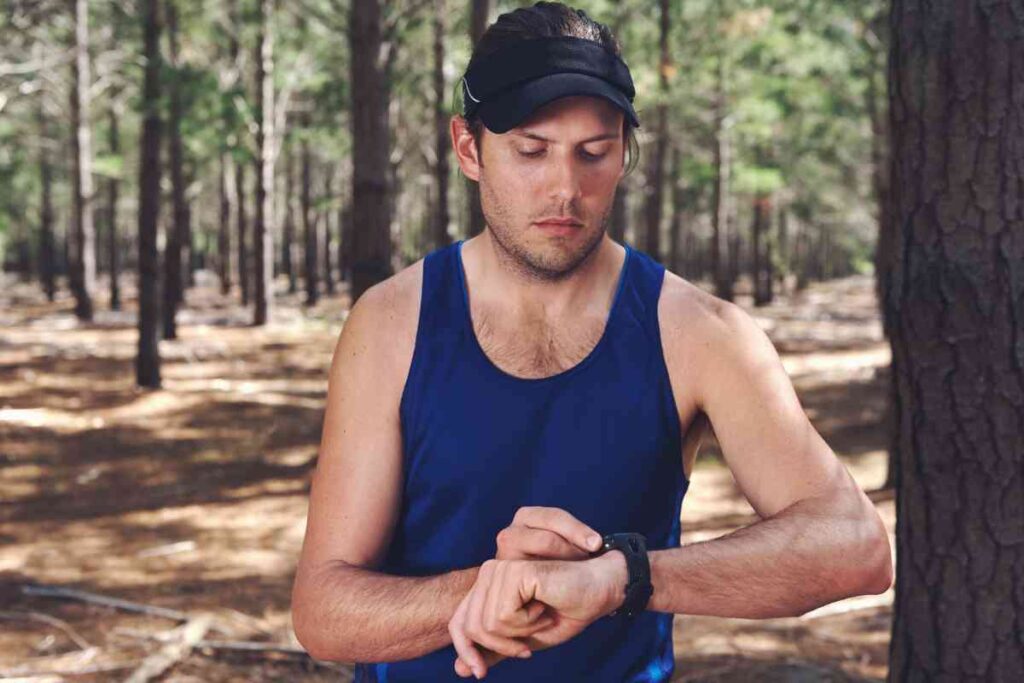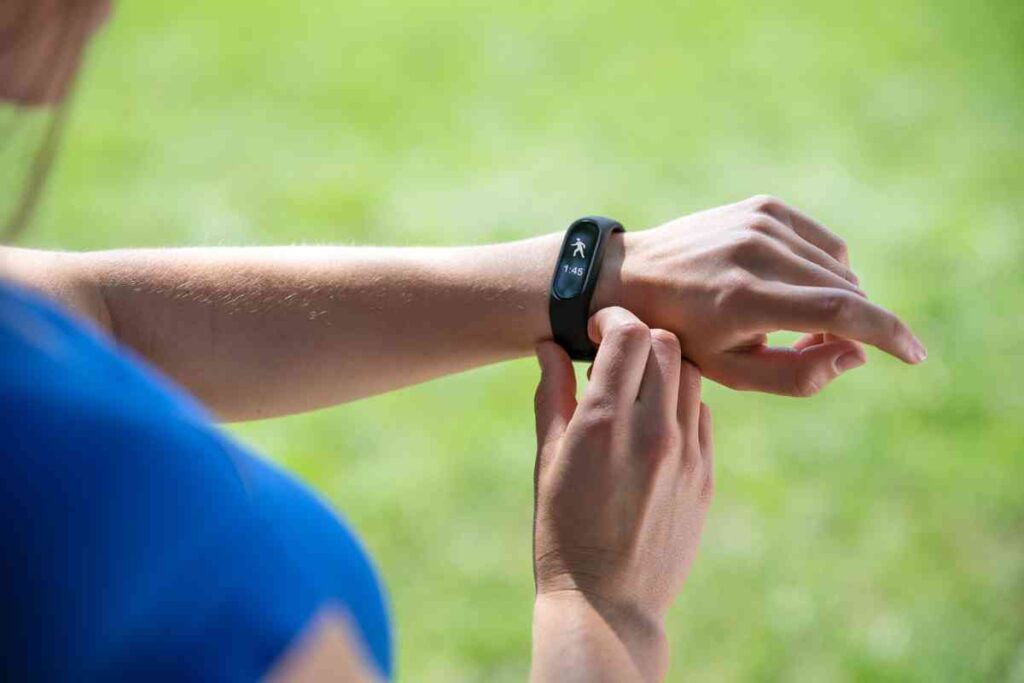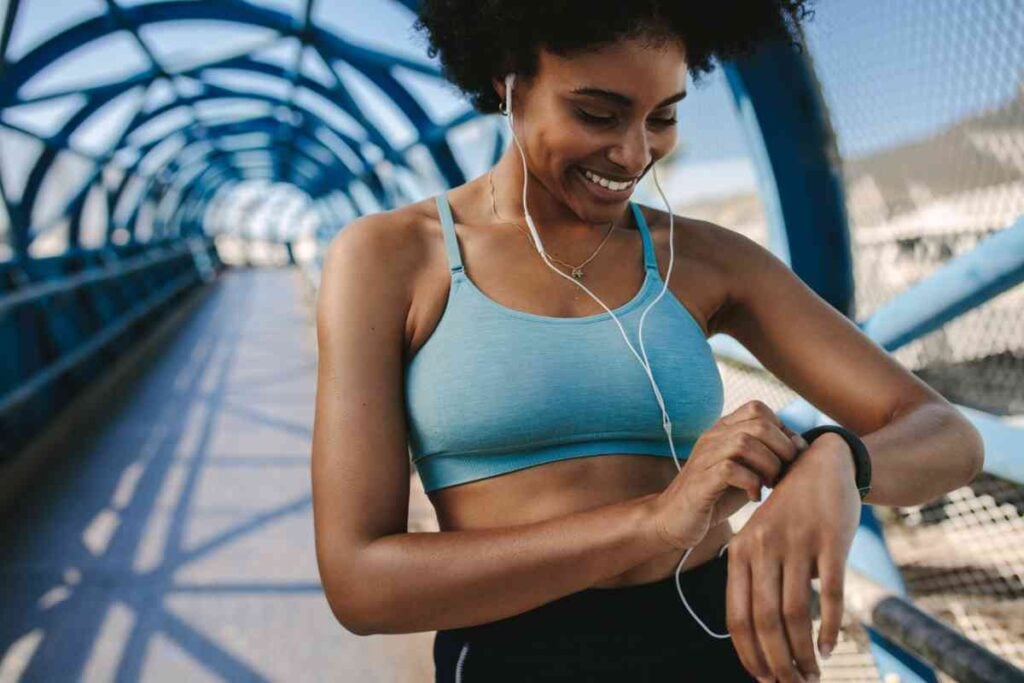Amazon Halo Accuracy Explained
The Amazon Halo can improve your fitness, sleep, and even communication. Is the Amazon Halo step tracker accurate?

How Accurate Is The Amazon Halo?
The Amazon Halo is more accurate than many but not all, methods that doctors use to study sleep and estimate body fat. It is certainly accurate enough to be a useful tool. The heart rate monitor is accurate, but the step tracker is less so.
I have used an Amazon Halo to improve my health and energy over the last few months. Improving your sleep quality makes your whole life better.
What Does The Amazon Halo Do?
The Amazon Halo measures your heart rate, tracks your sleep, and even listens to your voice to give you feedback. You can use this feedback to exercise better, sleep better, and speak better.
The hardware includes a heart rate monitor, an accelerometer (for tracking your movements), a temperature sensor (for tracking sleep), and a couple of microphones to record your voice.
Tracking Your Sleep
The Amazon Halo doesn’t only measure how long you stay asleep, but what sleep stages you enter. If you try to improve your sleep quality, your Amazon Halo will give you feedback.
Tracking Your Voice
The Amazon Halo can tell how your tone of voice usually sounds. A lot of how you come off to others is in your tone of voice. You can become a more confident, persuasive, or likable person if you learn how to speak better.
Does Amazon Halo Measure Body Fat?
The Amazon Halo can also create a 3-dimensional model of your body and estimate your body fat percentage from the model. The Amazon Halo does not have its own camera, but it works with your smartphone.
After you take a picture with your smartphone’s camera, the Amazon Halo will show you what your body would look like if you gained or lost fat. This can inspire you to get in shape.
Tracking Your Movement

The Amazon Halo can also record how often you walk or run with its accelerometer. The more active you are, the more points you earn. Running is better than walking, and if you don’t move at all for too long, you will lose points.
How Accurate is Any of This?
Amazon claims that its technology is very accurate at estimating how much body fat you have, as accurate as a doctor’s estimates. It looks at fat distribution and not merely the shape of the body.
The advanced AI uses a neural network to create and analyze the 3D model. A study (which was funded by Amazon, but involves leading experts) shows that it works well, better than many lab devices.
Body fat matters more than BMI. A person who has a fairly high BMI but not much body fat doesn’t need to lose weight.
How the Study Was Performed
The study seems to have been fair even though Amazon funded it. The best method of measuring body fat is dual-energy X-ray absorptiometry or DXA. Other methods are compared to DXA and judged by whether or not they give results that agree with DXA.
The study found that Amazon’s technology works better than any other method doctors use except for DXA. For example, air displacement plethysmography devices did not perform as well as the Amazon Halo.
How Accurate is the Sleep Tracker?
Studies also show that Amazon’s sensors and AI can accurately measure your sleep quality. The technology has been tested against that used in sleep labs and proven to work well.
It shows how long you spend in each sleep stage. For example, you might be in REM sleep (dreaming) for ten minutes, then in deep sleep for 30 minutes, then in light sleep for 10 minutes, and so on. It gives you a graph called a hypnogram, which shows you how you slept that night.
How the Sleep Tracker Study Was Performed
The sleep tracker study involved more than 100 participants, plus doctors and sleep technicians. Each person would be monitored with equipment either at a sleep lab or at home.
A doctor and three technicians gave the person a sleep score of 1 to 100. These results were then compared to those of different sleep analysis methods. Those that reported results closest to the DXA method doctors and technicians used were judged the most effective.
How to Get an Accurate Measurement
Make sure your band is in the right spot and is not too loose. If it is snug and just above your wrist the sensors will be in the right spot and able to take accurate measurements.
Can the Amazon Halo Wrongly Think You Are Asleep?
Yes, the Amazon Halo can falsely believe you are asleep sometimes. If you are lying in bed and not moving, the Halo might falsely record that as sleep.
How Accurate Are Its Other Measurements?
Does Amazon Halo Measure Calories Burned?
Yes, the Amazon Halo activity tracker measures calories burned. Fitness trackers tend to be accurate when detecting the number of calories burned.
If you compare the results of the Amazon Halo to those of the Fitbit or the Apple Watch, you get a similar number of calories. The Amazon Halo can tell if you are walking, jogging, or running, and estimate how many calories you are using fairly accurately.
Is Amazon Halo Step Tracker Accurate?
Step trackers including the Amazon Halo may overestimate how many steps you take. When you move your wrist, the Amazon Halo may count that as a step.
Two-step trackers don’t give the same results. For example, the Amazon Halo might count 8% more steps than the Apple Watch.
However, the results are not so poor that the step tracker is useless. If your Halo says you took 10,000 steps yesterday, it’s not that big of a deal if you only took 9000.

How Accurate is Halo Heart Rate?
It measures your heart rate more accurately than your number of steps. The Apple Watch Series 7 and the Amazon Halo record very similar numbers for your heart rate. For accurate results, make sure the Halo is on your wrist properly.
Does the Amazon Halo Have Any Disadvantages?
Like some other fitness trackers, the Amazon Halo requires a subscription. Unlike some other trackers, the Halo Band doesn’t have a screen, and only sends the information to a smartphone app. However, you can get a Halo View rather than a Halo Band if you need a screen.
Key Takeaways
- The Amazon Halo has four different uses – tracking your activity, tracking your sleep, evaluating your voice, and measuring your body fat.
- The sleep tracker is accurate, although not quite as accurate as the methods sleep labs use.
- The body fat estimate is also accurate, better than most but not all methods doctors use.
- The heart rate counter is also accurate.
- The step tracker is less accurate and only gives you a rough estimate.
